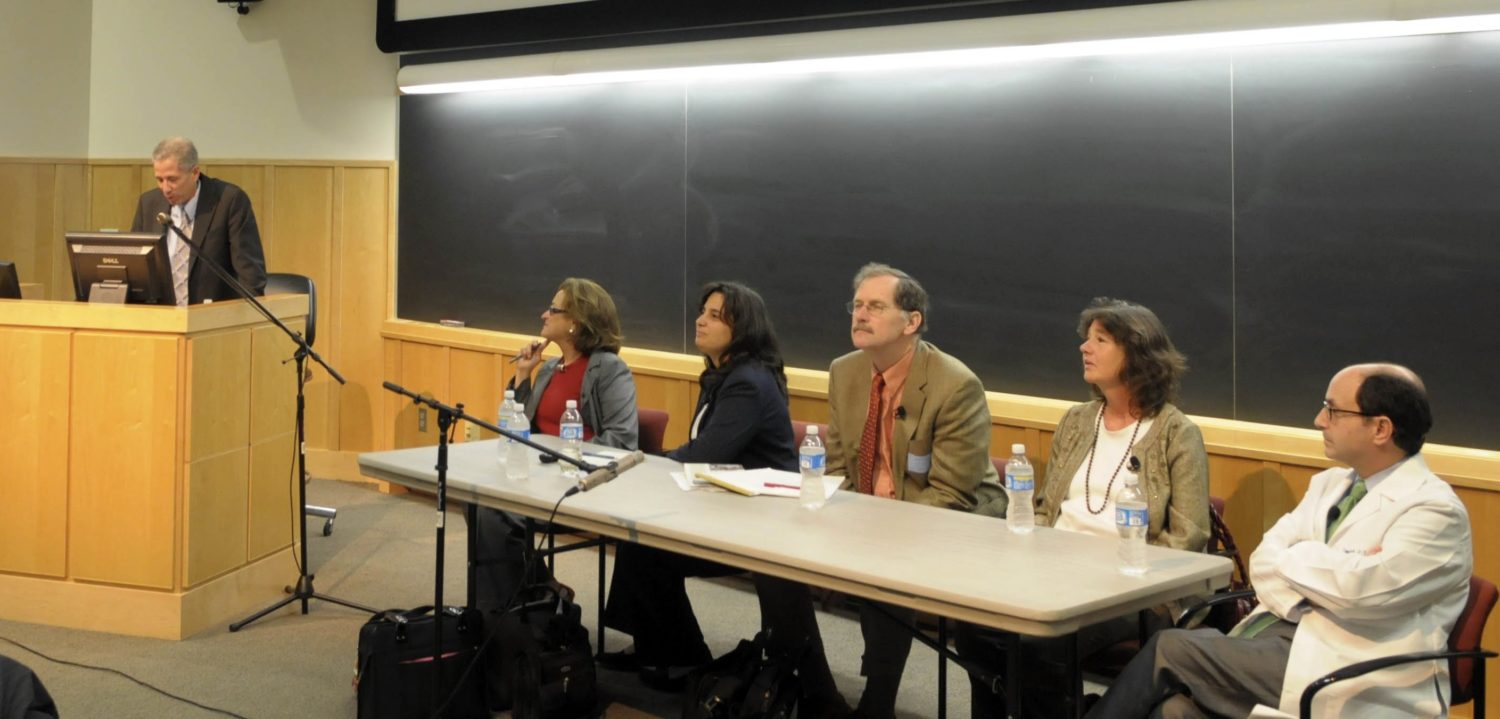
Why Scientists Should Talk to the Media: A CASW brown-bag lunch discussion
Yale dean Robert J. Alpern introduces a panel assembled at Yale School of Medicine on Oct. 5, 2009 to discuss “Why Scientists Should Talk to the Media.” Left to right on the panel are Cris Russell, president of CASW; Mariette DiChristina of Scientific American; Ron Winslow of The Wall Street Journal; Denise Grady of The New York Times; and Yale professor David J. Leffell.
Prominent science and medical journalists spoke in October 2009 at Yale School of Medicine about the importance of scientists communicating their work to the public. They were part of a CASW “brown bag” lunch program that was attended by more than 100 Yale faculty, staff and students and recorded for wider viewing.
Mariette DiChristina, editor-in-chief of Scientific American and National Association of Science Writers president; New York Times health reporter Denise Grady; and the Wall Street Journal’s deputy news editor and senior medical correspondent Ron Winslow talked about what reporters need to know from scientists. Yale Professor David J. Leffell, deputy dean for clinical affairs and CEO of the Yale Medical Group, urged his colleagues to talk to journalists in order to reach the general public. Yale Dean Robert J. Alpern introduced the October program; CASW President Cristine Russell organized and moderated the panel.
Alpern’s introduction and individual talks by the three reporters were recorded. The October 2009 issue of Yale Practice, a monthly publication of the Yale Medical Group, provided an account of the three reporters’ advice to clinicians and researchers.
DiChristina urged them to work with the media in explaining important public issues like stem cells, swine flu and cancer. “You are the folks that have the ability to explain those stories,” she said. “Editors like me are looking for stories with a point that matters to readers, that makes a connection to their lives and interests.”
Grady said that reporters depend on scientists’ willingness to share their expertise: “We try to do our homework before we call you, but it’s a given that you are going to know the literature in your field, the other researchers and the inside story much more than we possibly can.”
“If you are passionate about what you are doing,” said Winslow, “I think there is a great audience for your story.”
Leffell, a dermatology professor, melanoma expert and cancer researcher who has had extensive dealings with the medical press, was enthusiastic about the importance of public communication: “It has become very clear to me that we have a great story to tell….I hope that this presentation has opened people’s minds and made people more comfortable with the symbiotic relationship we can have with the media.”
The Yale “brown bag” program is the latest in a longstanding series organized by CASW aimed at improving media coverage and public understanding of science by engaging the scientific community in a dialogue about our respective roles. Duke University Institute for Genome Sciences and Policy and Sigma Xi; Harvard Medical School; MIT; the Marine Biological Laboratory; and the Howard Hughes Medical Institute are among the institutions that have hosted previous events.
CASW extends thanks to Robin Hogen, deputy director of Yale University’s Office of Public Affairs, for organizing the “brown bag” lunch and to Yale Broadcast & Media Center producer Wes Choy for preparing the video.